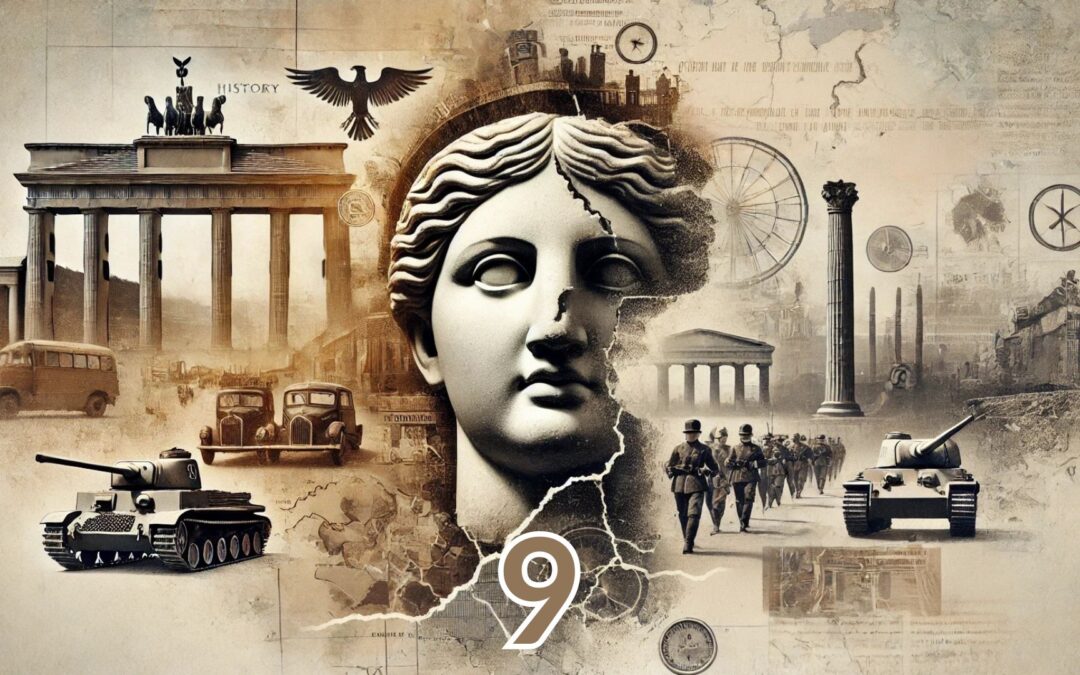- Ancient Greece: City-States and Spartans
- Keywords
- Key Takeaways
- Frequently Asked Questions (FAQs)
- How did Athens become the center of intellectual pursuits in ancient Greece?
- What role did women play in ancient Sparta compared to Athens?
- What was the economic foundation of Corinth?
- Were there any efforts for peace and alliances among city-states before the Peloponnesian War?
- How did the everyday life of a common citizen in Athens differ from that of Sparta?
- Myth Buster
- Myth: Spartans were uneducated and lacked culture.
- Myth: All ancient Greeks spoke the same language and shared identical cultures.
- Myth: The Battle of Thermopylae was a Spartan-only stand.
- Myth: Athens was a pure democracy where everyone had a say.
- Myth: Spartans were cruel to their children by design.
- Myth: City-states like Corinth were always subordinate to Athens and Sparta.
- Myth: Ancient Greek city-states were always in conflict.
- Myth: The agoge was primarily about physical training.
- Myth: The Peloponnesian War was solely between Athens and Sparta.
- Myth: The decline of Athens and Sparta meant the end of Greek influence.
Ancient Greece: City-States and Spartans
In a world not entirely different from ours, where olives were currency and discus throws were the sport of choice, the lands of ancient Greece beckoned as a tumultuous theater of human ambitions. The geography itself seemed to conspire in mankind’s favor – majestic mountains, fertile plains, and an azure coastline that kissed the Mediterranean, urging various communities to form their own ‘micro-nations’ called city-states.
Picture this: a map of ancient Greece looking somewhat like a game of Risk. Each region boasts its colors, flags, and more importantly, its unique brand of politics and culture. Among these, Athens, with its intellectual pursuits and demagogues, was like the nerdy school captain everyone admired. Corinth, with its thriving port, was the entrepreneurial kid who had a knack for selling seashells even by the seashore. But then, there was Sparta, the gym junkie with chiseled abs and a penchant for terse replies, or ‘laconic’ wit as it was called, after their region, Laconia.
Now, if the city-states were siblings, Sparta was the brooding, muscle-bound brother who spent too much time at the gym and loved it. While others chatted about philosophy, art, and democracy, Spartans were perfecting the art of the spear-thrust and cultivating grim determination from a tender age. Babies, if deemed unfit, were… let’s just say, not invited to the Spartan party. It sounds harsh, but Spartans believed in survival of the fittest, long before Darwin made it cool.
Growing up in Sparta wasn’t a cakewalk either. At seven, boys were whisked away from their mothers to undergo the ‘agoge’, a brutal regime that makes modern-day boot camps seem like a walk in the park. Their diet? Meager. Their training? Relentless. Their social life? Non-existent unless you count wrestling your peers in the mud as a Friday night outing.
While Spartans were doing push-ups and munching on bland black broth, their neighbors in Athens enjoyed symposiums, discussing the latest in philosophy and drama over copious amounts of wine. They’d probably roll their eyes and joke, “Why did the Spartan cross the road? To get to the other fight!” But deep down, there was mutual respect. After all, when the mighty Persian Empire knocked on Greece’s door with expansionist dreams, it was Sparta and Athens who set aside their differences, united their forces, and gave the Persians a run for their money.
Now, imagine the Battle of Thermopylae, where 300 Spartans, under King Leonidas, stood against the colossal Persian army. It wasn’t just about the numbers; it was about grit, strategy, and sheer audacity. The narrow pass at Thermopylae leveled the playing field, and though the Spartans eventually fell, they became legends. “Go tell the Spartans, stranger passing by, that here, obedient to their laws, we lie.” A touching epitaph, isn’t it?
But as with all great tales, rivalry resumed once the Persian dust settled. Athens and Sparta locked horns in the Peloponnesian War. It was like watching two titans clash, each blow echoing through history. Spoiler alert: Sparta won. But in war, victories are often pyrrhic. Both city-states, drained of resources and men, paved the way for new powers, like Macedonia, to rise.
As our sandals tread the paths of ancient Greece, from the intellectual salons of Athens to the rugged training grounds of Sparta, the tales of these city-states unfurl like Homer’s epics – filled with heroes, villains, twists, and turns. The legacy of these city-states, their triumphs, follies, and feuds, are etched into the annals of history, whispering to us the timeless tales of ambition, rivalry, unity, and the indomitable spirit of mankind.
Keywords
- City-States: Individual and autonomous city-centered territories, each with its unique government and customs, that formed the political landscape of ancient Greece.
- Sparta: A military-oriented city-state in ancient Greece, known for its warrior culture, austere living conditions, and laconic wit.
- Athens: The city-state recognized as the birthplace of democracy, renowned for its intellectual and artistic achievements.
- Laconic Wit: Brief and expressive communication style, named after Laconia, the region surrounding Sparta.
- Agoge: The rigorous education and training regimen that Spartan boys underwent to become skilled warriors.
- Peloponnesian War: A protracted conflict between Athens and Sparta, showcasing their military strengths and political strategies.
- Thermopylae: A narrow passage where a small Greek force, led by 300 Spartans, valiantly defended against the massive Persian army.
- Persian Empire: A vast and powerful ancient empire that clashed with the Greek city-states during the Greco-Persian Wars.
- Corinth: An affluent Greek city-state known for its thriving port and economic prosperity.
- Symposium: A convivial meeting for drinking, music, and intellectual discussion among the ancient Greeks, especially in Athens.
Key Takeaways
- Ancient Greece was characterized by the existence of city-states, each with its distinct culture and governance.
- Sparta was known for its military prowess, harsh living conditions, and strict societal structures.
- Athens was celebrated for its intellectual, artistic, and democratic developments.
- The Greek city-states had internal conflicts but united against common external threats, such as the Persian Empire.
- The Battle of Thermopylae exemplified Spartan bravery and strategic combat, becoming a legendary event.
- The Peloponnesian War weakened both Athens and Sparta, leading to the rise of new powers like Macedonia.
Frequently Asked Questions (FAQs)
How did Athens become the center of intellectual pursuits in ancient Greece?
Athens became an intellectual hub due to its democratic governance, which encouraged free thinking, speech, and innovation. The city attracted philosophers, artists, and thinkers, becoming a center for learning and culture.
What role did women play in ancient Sparta compared to Athens?
In Sparta, women had more freedoms and rights compared to their Athenian counterparts. They were educated, trained in physical fitness, and could own property, aiming to be strong to produce strong Spartan warriors.
What was the economic foundation of Corinth?
Corinth’s economy was anchored in its strategic location, boasting a thriving port that facilitated trade. The city was a commercial hub, connecting different parts of Greece and beyond.
Were there any efforts for peace and alliances among city-states before the Peloponnesian War?
Yes, there were alliances, the most notable being the Delian League, led by Athens, and the Peloponnesian League, led by Sparta. These alliances were initially aimed at mutual protection but later became sources of power and conflict.
How did the everyday life of a common citizen in Athens differ from that of Sparta?
Athenians enjoyed more leisure and cultural activities, engaged in political and intellectual discourses, and had a less rigid lifestyle. Spartans led austere lives, focused on military training and discipline.
Myth Buster
Myth: Spartans were uneducated and lacked culture.
Reality: Although military-focused, Spartans had a rich oral tradition, music, and dance. Education, though centered on warfare, included learning to read and write.
Myth: All ancient Greeks spoke the same language and shared identical cultures.
Reality: There were various dialects and cultural nuances among different city-states, each boasting its unique traditions, art, and governance.
Myth: The Battle of Thermopylae was a Spartan-only stand.
Reality: While Spartans were central, other Greek warriors also participated in this historic defense against the Persians.
Myth: Athens was a pure democracy where everyone had a say.
Reality: Athenian democracy was direct but limited to free male citizens, excluding women, slaves, and non-citizens.
Myth: Spartans were cruel to their children by design.
Reality: Spartan society was structured to produce strong warriors; the upbringing was harsh but aimed at fostering resilience, strength, and discipline.
Myth: City-states like Corinth were always subordinate to Athens and Sparta.
Reality: Corinth was a significant power, with a strong economy and navy, playing crucial roles in conflicts like the Peloponnesian War.
Myth: Ancient Greek city-states were always in conflict.
Reality: While conflicts were common, periods of peace, trade, and cultural exchange among city-states also marked ancient Greek history.
Myth: The agoge was primarily about physical training.
Reality: Besides physical endurance, the agoge instilled discipline, loyalty, and mental toughness, preparing Spartans for both warfare and societal roles.
Myth: The Peloponnesian War was solely between Athens and Sparta.
Reality: It involved multiple city-states, each aligning with either Athens or Sparta, making it a pan-Hellenic conflict rather than a bilateral war.
Myth: The decline of Athens and Sparta meant the end of Greek influence.
Reality: Though weakened, the city-states’ cultural, intellectual, and military legacies lived on, influencing Western civilization profoundly and leading to the Hellenistic period marked by figures like Alexander the Great.











0 Comments